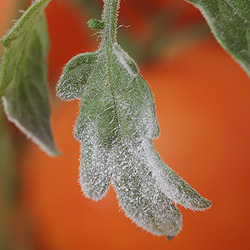Protein function in plant immunity
We constantly try to identify new proteins that are involved in plant immunity, and use molecular techniques to understand their interaction partners and how they work together. The sorts of proteins we are interested are pathogen receptors, components of signal transduction pathways that elaborate the immune response, and pathogen virulence molecules called effectors that seek to destroy immunity. We use cutting edge biochemical techniques including high resolution mass spectrometry to perform these studies. It is a fascinating area because the pathogens always seek to evolve new proteins to overcome host immunity, and the plants must change their receptors and use innovative mechanisms to trap the pathogens.
Project status
Content navigation
About

We constantly try to identify new proteins that are involved in plant immunity, and use molecular techniques to understand their interaction partners and how they work together. The sorts of proteins we are interested are pathogen receptors, components of signal transduction pathways that elaborate the immune response, and pathogen virulence molecules called effectors that seek to destroy immunity. We use cutting edge biochemical techniques including high resolution mass spectrometry to perform these studies. It is a fascinating area because the pathogens always seek to evolve new proteins to overcome host immunity, and the plants must change their receptors and use innovative mechanisms to trap the pathogens.
Honours project 2019: You will use a new interaction method to find host immune targets of a bacterial effector protein, and use mass spectrometry to identify the targets. You will use molecular and genetic techniques to characterise the interaction, and show that it is important during infection. You will develop strong laboratory skills under the guidance of an experienced mentor.
ASE/Summer Program: You will use recombinant DNA technology to examine structure-function relationships in a bacterial enzyme. You will split the protein into fragments using molecular techniques, and re-constitute the enzyme to restore its activity. You will investigate this as a tool to detect protein-protein interactions. You will use three-dimensional protein modelling, DNA techniques, and protein techniques to complete this project.

